
Weightlifter Laurel Hubbard will become the first trans-identified male athlete to compete in a women’s category at the Olympics after being selected to represent New Zealand at the Tokyo Games. At 43 years old, Hubbard is the oldest weightlifter at the Olympics — the average age of the women weightlifters being nearly half that at 23. Hubbard previously competed internationally as Gavin, and at 35 years old began referring to himself as a woman. Notably, athletes begin to phase out of competitive sports at around their thirties, and although this certainly is dependent on which type of sport they participate in, there hasn’t been a female athlete who has competed in a super heavy weightlifting at an Olympic level over the age of 35 in at least the past two decades, according to developmental biologist Emma Hilton. The year that Hubbard debuted in female weightlifting, he set a new world record in the heavyweight category. For this, Hubbard was named the 2017 Woman’s Grand Master.


Representatives of the nation of Samoa have been speaking out against Hubbard’s participation in the women’s category since 2019, when Hubbard bested local hero Feagaiga Stowers at the Pacific Games. Stowers, a young woman who began lifting to cope with surviving sexual abuse, had won a gold medal in the 2018 Commonwealth Games. That year, Hubbard had been ineligible for participation after sustaining an elbow injury. However, upon returning to the sport in 2019, he placed first; Stowers took the silver medal, and Charisma Amoe-Tarrant of Australia took the bronze.
In a 2019 article for Samoa Observer, Mata'afa Keni Lesa wrote of how Stowers had previously entered the Samoa Victims Support Group, where she began weightlifting, pointing out that her story and success had been inspirational in her home country. According to Lesa: “It will be a tragedy of gigantic proportion for sport when this sort of carrying is allowed. We talk a lot about empowering women, this does not empower women. If anything, it is taking power away from them. It is robbing them of what rightfully belongs to them.”
Samoa Weightlifting Federation President and Stowers’ coach, Tuaopepe Jerry Wallwork, told Reuters: “Women have to have a level playing field because I still think that this is almost similar, almost like a case of someone else taking drugs, taking doping and there’s an unfair playing field there… I think all the women should stand up and address it... and take a strong case to the IOC (International Olympic Committee) and try to turn this around.”
Samoa’s Prime Minister, Tuilaepa Aiono Sailele Malielegaoi, also objected to Hubbard’s participation. In 2019, he told Samoa Observer: “This fa'afafine or man should have never been allowed by the Pacific Games Council president to lift with the women. No matter how we look at it, he's a man, and it's shocking this was allowed in the first place.”

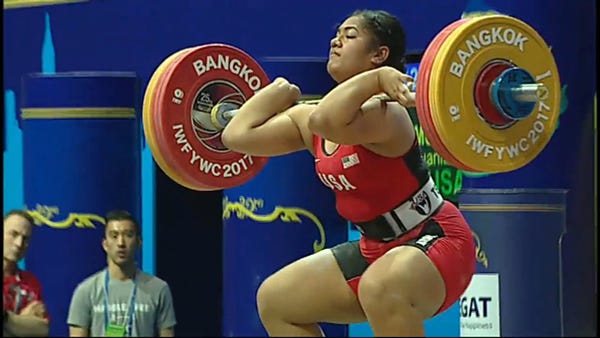
Emma Hilton and others on social media have pointed to Kuinini Manumua from Tonga as the rightful participant robbed of her position, since the qualification list posted by the International Weightlifting Federation (IWF) for the 87+ kg weightlifting category does not contain Stowers’ name. However, she likely wouldn’t be listed since Hubbard placed above Stowers at the Pacific Games, beating her out for a gold medal. This illustrates how quickly the issue of fairness in sports becomes complicated due to the presence of a single male athlete in the women’s category. Each time a male competes against women, his presence impacts all women involved; certainly his presence must cause anxiety and alter the performance of another athlete in some way. Every win for the male athlete is a loss for a female who might have earned a higher placement.

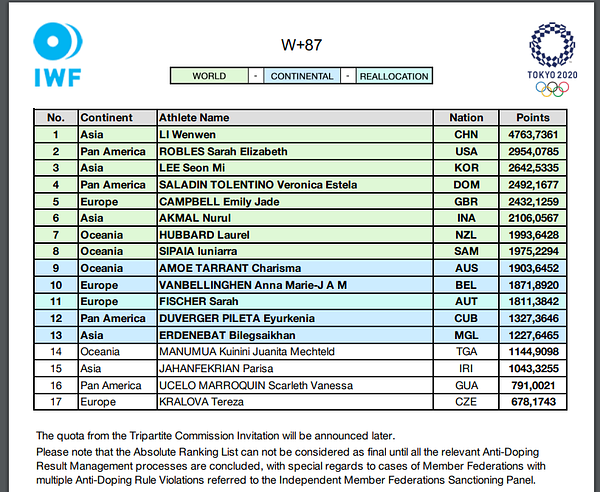
Former Olympic weightlifter Tracey Lambrechs spoke out in May of this year, alleging that women who felt frustrated by Hubbard’s inclusion in the women’s category were told to “be quiet”.
“I’m quite disappointed, quite disappointed for the female athlete who will lose out on that spot,” said Lambrechs, who won a bronze medal for New Zealand at the 2018 Commonwealth Games.
“We’re all about equality for women in sport but right now that equality is being taken away from us. I’ve had female weightlifters come up to me and say, ‘what do we do? This isn’t fair, what do we do?’ Unfortunately, there’s nothing we can do because every time we voice it we get told to be quiet.”
News of Hubbard’s selection to compete in the Tokyo Olympics as a female athlete resulted in an outpouring of shock and protest from netizens on social media. Hubbard’s name trended on Twitter, and Sharron Davies, a swimmer who represented England in the 1980 Olympics Games in Moscow and who has opposed the intrusion of males in female sports categories in the past, tweeted:


Hubbard was born male and as such has a natural biological advantage. Testosterone impacts physiology during development, particularly in regards to bone density and muscle mass. In Hubbard’s case, there is not yet long-term data available which could reveal the true extent of his advantage. Hubbard, a male, is being allowed to compete against women based overwhelmingly on his subjective claim to womanhood and on hormone levels stipulated by the International Olympic Committee (IOC). In 2015, the IOC issued guidelines allowing any transgender athlete to compete as a woman provided their testosterone levels are below 10 nanomoles per liter for at least 12 months before their first competition.
Yet two recent studies illustrate how trans-identifying males retain a physical advantage even after up to three years of “hormone therapy”, or the administration of wrong-sex hormones and testosterone suppressors.
According to Transgender Women in the Female Category of Sport: Perspectives on Testosterone Suppression and Performance Advantage: “the data show that strength, lean body mass, muscle size and bone density are only trivially affected”.
Another study, How does hormone transition in transgender women change body composition, muscle strength and haemoglobin? Systematic review with a focus on the implications for sport participation, says: “hormone therapy decreases strength, LBM and muscle area, yet values remain above that observed in cisgender women, even after 36 months. These findings suggest that strength may be well preserved in transwomen during the first 3 years of hormone therapy.”
Women are not a hormone level, as Save Women’s Sports representative Beth Stelzer points out. Though we have known for untold centuries that men possess a physical advantage over women in sports, the admittance of males into female sports is basically an ongoing experiment being conducted at the expense of women and girls in order to boost the confidence of such men while simultaneously discouraging and insulting female athletes. Truly, men’s feelings are being valued over women’s reality. To compound the matter further, women’s weightlifting has only been an Olympic sport since 2000, for a total of five Olympic games. In contrast, the men’s weightlifting category debuted in 1896.


In addition to biological advantages, Hubbard was born into wealth: his father, Dick Hubbard, is a politician and businessman who made a fortune as a cereal magnate. Hubbard was involved in a car accident that seriously injured an elderly couple, requiring hospitalization and spinal surgery. The couple, Gary and Sue Wells, spoke out in 2019 against what they believed was a lenient penalty given to Hubbard, and at the suppression of Hubbard’s name regarding their case: “The penalty and suppression were totally unjust. No notice was taken of our feelings and she (Hubbard) got everything she wanted.” Hubbard was discharged without a conviction, ordered to pay $13,000, and had his license restricted for one month. Hubbard’s name was suppressed from the media to allow him avoid stress while training for the Olympics, to which Gary Wells responded: “It was to protect her from hardship while she trained for the Olympics. What a load of crap. We couldn't do anything for four months.”
To sum up, a male, with all the biological advantages that confers, born into a wealthy family, competed against and took places that otherwise would have gone to marginalized women, at least one of whom took up sport to empower herself after experiencing male violence. Laurel Hubbard is a clear example of how claiming a transgender identity surpasses all else: racial, economic, and male privileges.

He is not alone. Several men have already begun competing against women, many of whom previously competed against men, and some of whom have apparently ‘aged out’ of the male category. Valentina Petrillo, for instance, aged 44, has already won 3 gold medals at the women’s Italian Paralympics Athletics Championships — despite Petrillo having made not even the minimum effort to falsify his official documents. He is still listed as a male on his identification.

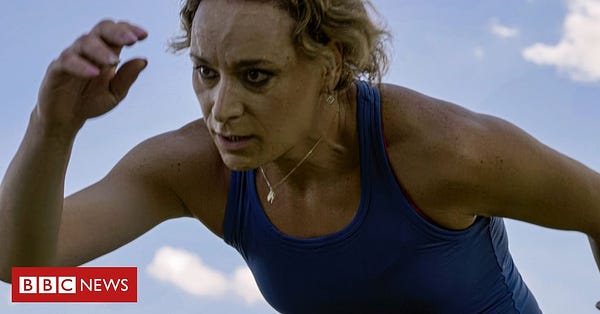
Why are we meant to blindly believe that males identifying into women’s sports can be made fair for all involved, despite the physical advantages they possess, and while there are no notable female athletes identifying into male sports and surpassing men? The answer, simply put, is sexism. For centuries men have been portrayed as the default humans, which has resulted in medicine being researched on predominantly male test subjects, among scores of other examples — so many, in fact, that Caroline Criado-Perez wrote an entire book, Invisible Women, on the subject. Because of this androcentric cultural lens, that which men desire is framed as a human right, whereas women’s rights can be sidelined to make room for men’s feelings. What of the rights of women to compete fairly in sports alongside their peers? And how should women feel about being used in this way to validate a man’s fantasy of ‘becoming’ a woman?
Increasingly women are coming forward to say that they feel insulted; but when they do, they are being silenced. This cannot last much longer. The world is watching. Women are not ‘feminized’ men. Women do not exist to validate the feelings of men. Women are half the population, exist independently of men, and have every right to their own spaces, sports, and experiences. Womanhood is a state of being, not an identity or feeling.
Thanks to Genevieve Gluck for letting me cross-post this from her excellent newsletter. Please consider making a donation to Save Women’s Sports. You can also follow Save Women’s Sports Australasia on Twitter.
Also: I didn’t want you to miss this wonderful exchange.



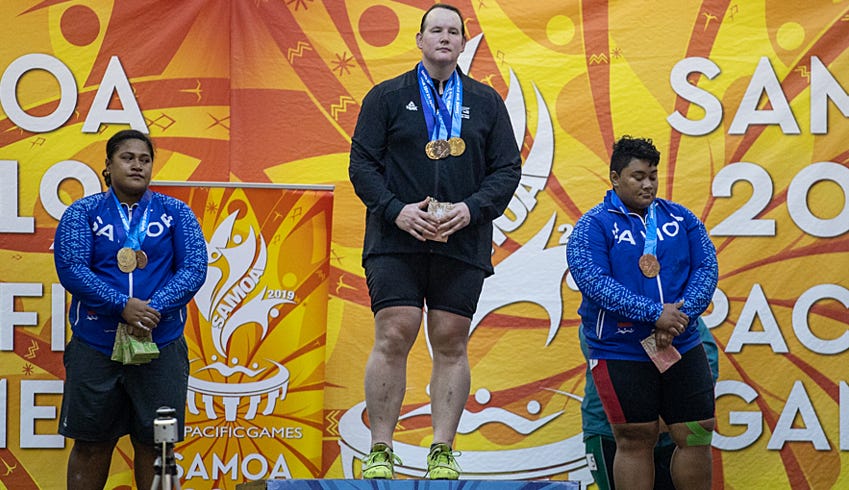
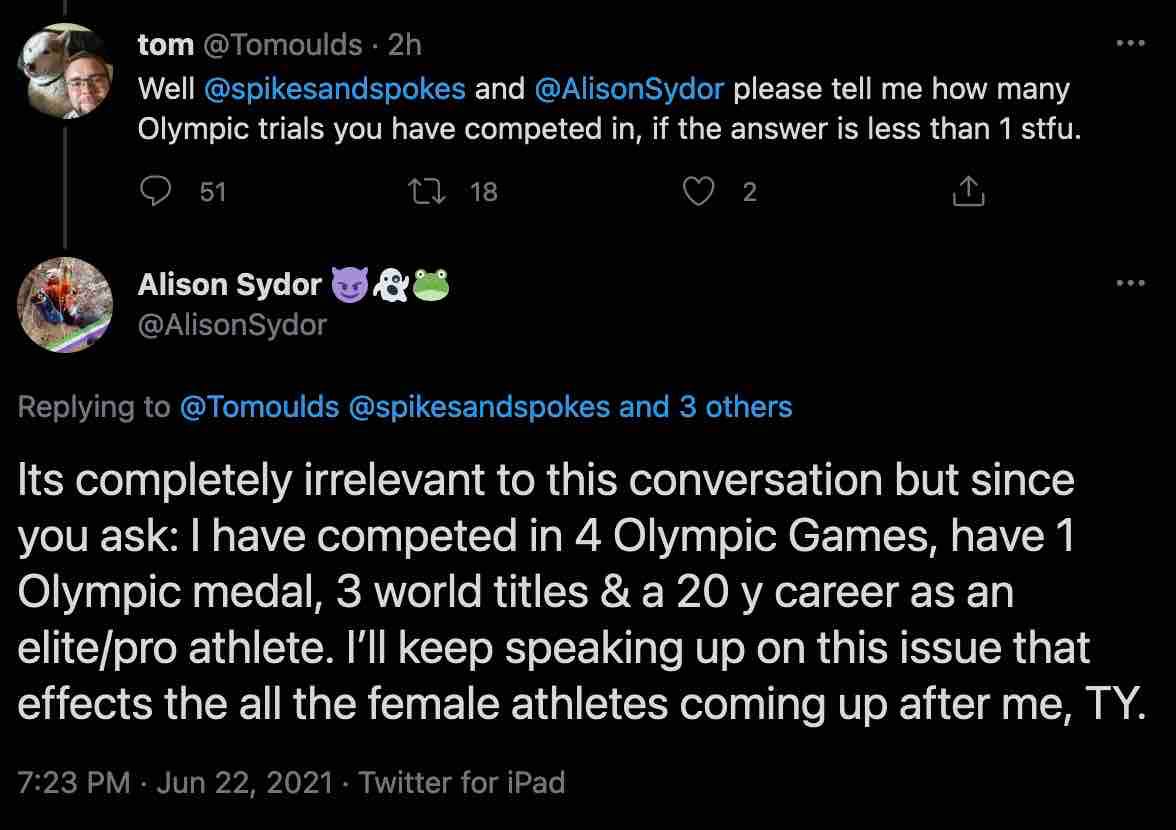



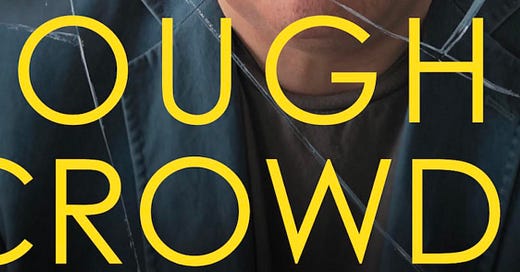

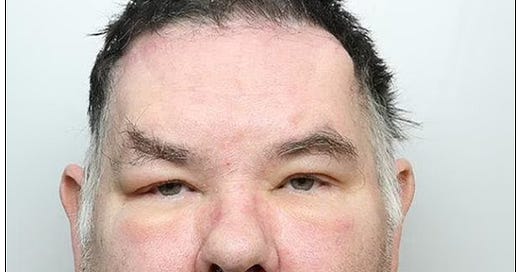



Anyone who supports males competing in women's sports either hates women or is an absolute moron of the highest order. Especially in this case. How can you defend the decision to exclude an underprivileged, minority woman in favour of a rich, white, privileged male and call yourself a feminist, or worse an intersectional feminist. It's shameful.
Andy Turner - World bronze 2011, European and Commonwealth Champ 2010, 3 x Olympian, WR holder-200m hurdles summed it up: "Couldn't be more against this. I feel sorry for all the women cheated out of a potential medal."